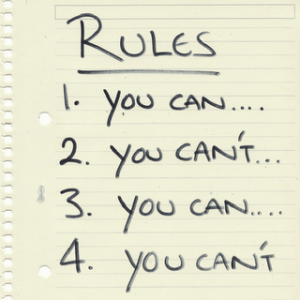
‘Mediocrities everywhere, I absolve you all,” Salieri declared at the end of Peter Shaffer’s play, Amadeus. Salieri, the darling of the Habsburg court in 18th-century Vienna, could not deceive himself.
He knew he was mediocre. Will Self, poor chap, has yet to acquire the gift of self-knowledge and, if his comments this week about George Orwell offer a reliable guide, he will remain in the dark for a good time yet.
Writers approach Orwell with trepidation, not because he was a great novelist (he wasn’t; he was very good) but because his essays were, at their best, unimprovable. If you use words for a living, however modestly, then Orwell is your headmaster. And the best remains “Politics and the English Language”.
In this celebrated essay, written in 1946, Orwell writes with admirable clarity about the necessity of using clear language, so that one’s meaning is never lost in a fog of cliché or imprecision. One of the things he urges writers to avoid is “pretentious diction”. No wonder, you may think, that Self of the moody looks and look-at-me polysyllables doesn’t think he’s much cop.
“A supreme mediocrity”, he has called him, and those who have followed Orwell’s precepts are no less mediocre. According to Self plain English is for dullards. “Feel me?” he asks, in a nod towards black American usage. Not just at the moment, thank you; not until you’ve learnt to write better.
Self, of course, is a bit of a joke. A rather self-conscious joke, but a joke none the less. He writes books in much the same way that Ernie Wise wrote plays, and appears to be puzzled why nobody is keen to take him at his own estimation. A one-man modernist army, he is determined to march all the way back to 1922, where he hopes Joyce will be waiting to receive him. He’s in for a disappointment.
Owen Jones, the angry journalist who has just published a book about “the establishment”, is another disappointed man. Penguin, which published his book, chose most unwisely to carry a line on the cover from Russell Brand, declaring Jones to be “our generation’s Orwell”. Embarrassed by all the tittering that ensued, it is apparently redesigning the book. For the author’s sake, as well as its reputation, it should.
A lion remains a lion, whether or not a few wasps sting him. Orwell can take Self’s self-regarding barbs, and he can withstand the absurd comparison with Jones, who comes across as a grumpy teenager. If these silly stories persuade people to pick up one of Orwell’s books, to find out what the fuss is all about, then some good will have emerged from all this nonsense.
Unlike many contemporary writers, Orwell had lived a bit before he put pen to paper. He served as a policeman in Burma, washed pots in Paris, and worked in a bookshop – an experience that helped him write a fine essay and a very readable novel. He also, famously, spent time in Spain during the Civil War and tramped through the towns of northern England.
As reporter, essayist and novelist, the breadth of his experience shines through each page with a humanity that engages the reader. A man of the Left who became by degrees an English patriot, he defies easy categorisation, not that it stops people from trying to categorise him.
And what sets him apart as an observer, apart from his eye, is that clarity of style. Along with Evelyn Waugh, who was a far better novelist, Orwell is one of the great stylists of 20th-century English prose.
He’s funny, too. “Such, Such Were The Joys” is one of the most amusing descriptions of life at prep school. “Boys’ Weeklies”, about reading material for young people, could only have come from Orwell’s pen. There isn’t a page that readers devour without smiling, or learning something useful.
“It is a strange fact,” he wrote in “England Your England”, “but it is unquestionably true, that almost any English intellectual would feel more ashamed of standing to attention during God Save The King than of stealing from a poor-box.” Ho ho! And it’s as true now as it ever was.
However much people strive to claim him for their own tribe, Orwell belongs neither to the Right nor the Left. His novels and essays are there for all readers to enjoy, and they will continue to be enjoyed so long as people read books.
If you haven’t read Orwell then it is not a bad idea to start with “Politics and the English Language”. Thereafter you will never fail to identify mediocrity when it shows its ugly face.
Telegraph Columnists: daily opinion, editorials and columns from our star writers
(441)








